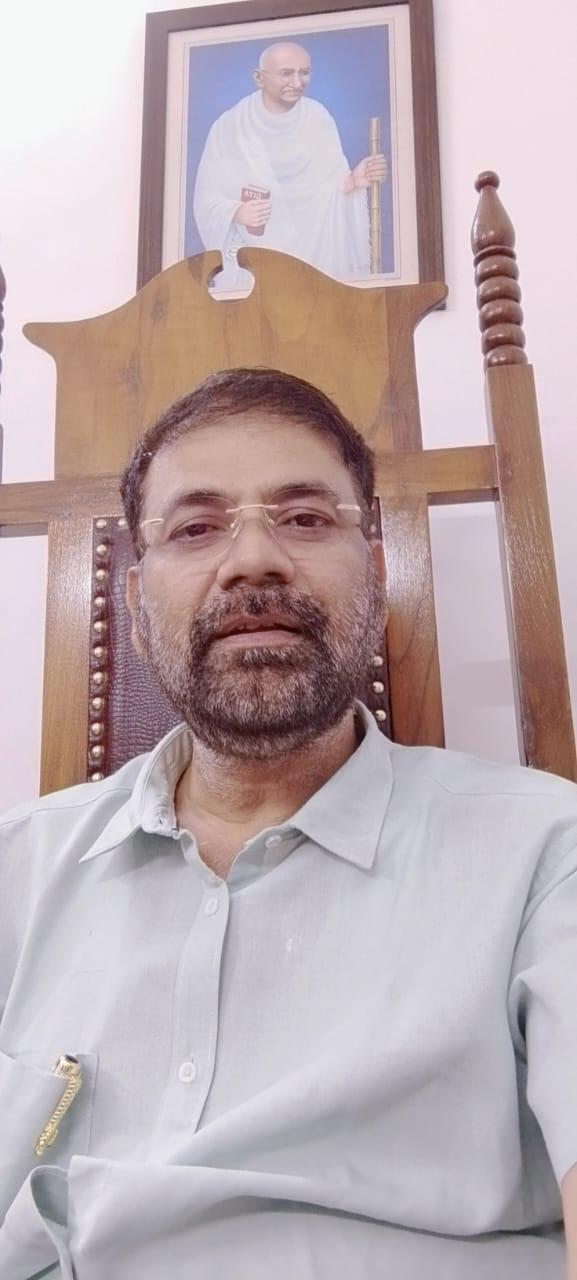Synposis:
Shamim Ahmed, honored as Qaid-e-Urdu, delivers a powerful message on protecting Urdu, Bengali, and India’s linguistic diversity—reminding the nation that languages are the true foundation of unity and identity.
Qalam Times News Network
Kolkata, August 21, 2025
Shamim Ahmed, a renowned human rights defender and celebrated language activist, honored with the title Qaid-e-Urdu, shared a goodwill message that struck a deep chord with people across the country. He drew attention to the ongoing marginalization of the Urdu language, reminding the nation of its rich heritage and unifying power in shaping collective identity.

The Role of Languages in India’s Unity and Identity
“Zaban mein hai qoum ki shaan, zaban mein hai us ki pehchaan
Zaban ke dam se hai zinda, har khawab, har ek armaan”
He said India is a land of immense diversity, where cultures, traditions, and languages have flourished side by side for centuries. Every language spoken within this country is a living testament to its history, its people, and its values. Yet it is deeply unfortunate that some of these very languages, born and nurtured in the soil of India, are often undermined, mocked, or even labeled as foreign.
Among the most striking examples is Urdu. Contrary to the misconception that Urdu is an outside influence, it is in fact a language that took shape, grew, and thrived within India. It is a language of poetry, culture, and expression, deeply woven into the fabric of the nation. To understand India, one need only explore Urdu, for it reflects the ethos and spirit of this land. Suppressing such a language is not merely a cultural loss but a denial of India’s own heritage. Yet despite being officially recognized as a second language in states such as Uttar Pradesh and Telangana, Urdu-medium schools are steadily declining due to a lack of government support. This neglect weakens not only the language but also the generations connected to it.
The same concern applies to Bengali. Regarded as one of the sweetest languages in the world, Bengali is not just the language of Bengal but also the voice of Rabindranath Tagore, Kazi Nazrul Islam, and Subhas Chandra Bose—figures who played a defining role in shaping India’s literature and independence movement. However, in some regions today, Bengali speakers face discrimination and are wrongly branded as “Bangladeshi” simply because of their mother tongue. In Assam, for example, parts of the Bengali-speaking population are often targeted under this label. To reduce this great Indian language to a foreign identity is a grave injustice to India itself.


India’s strength lies in its linguistic plurality. Hindi, Urdu, Bengali, Marathi, Telugu, Tamil, Punjabi, and many others are not separate or competing entities; they are all part of India’s collective identity. To promote one at the expense of others, or to dismiss a language as lesser or foreign, is to weaken the unity of the nation. Each language deserves equal recognition, government support, and opportunities for growth. The experience of Tamil Nadu serves as a reminder: the 1965 Anti-Hindi protests erupted when attempts were made to impose Hindi over Tamil. This episode demonstrated that undermining a regional language in favor of another not only hurts cultural pride but also threatens national harmony.

History bears witness that India’s freedom struggle was not fought by speakers of a single language but by people of all tongues. Urdu poets, Bengali reformers, Marathi leaders, Tamil intellectuals, and countless others came together with a shared vision of independence. This unity across linguistic lines was the foundation of a free India. To now divide ourselves by diminishing certain languages is to dishonor that sacrifice.
No Indian language is foreign. They were all born here, nurtured here, and have enriched this land in unique ways. To attack them is to attack India’s own culture. If we fail to preserve and respect our languages, we risk losing not only our diversity but also our identity. Nations that neglect their cultural roots ultimately fade from history.
For India to progress as a united and harmonious nation, it must embrace all its languages equally. Schools, institutions, and governments must ensure that every community feels its language is valued. Only then will we be able to pass on to future generations a society of peace, respect, and inclusiveness, not one of division and hostility.
Languages are not barriers; they are bridges. To protect them is to protect India’s unity, its culture, and its soul.







